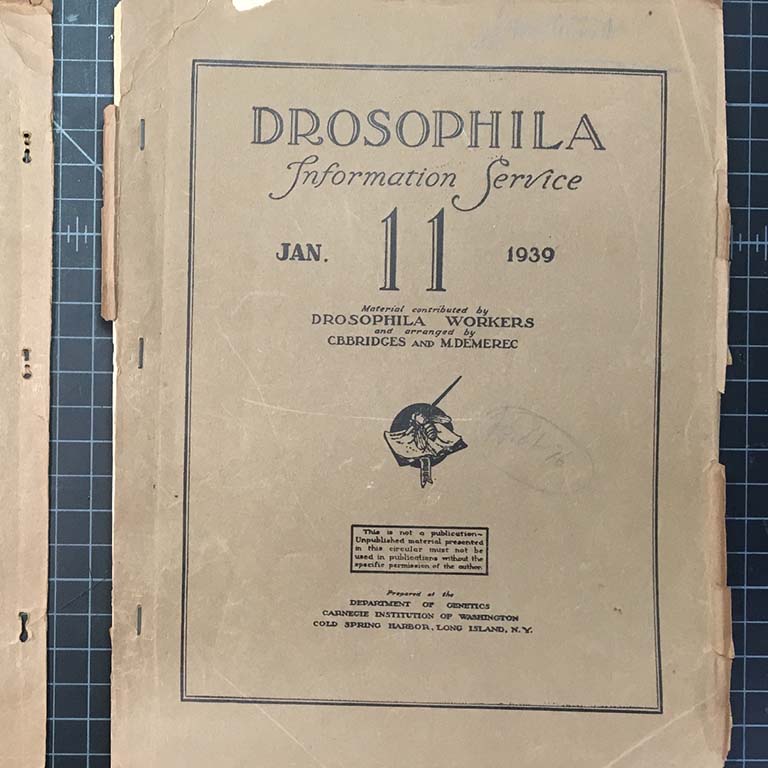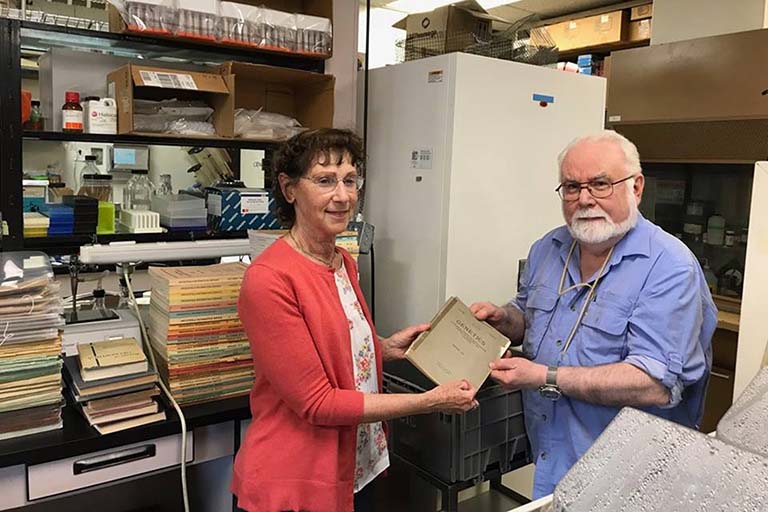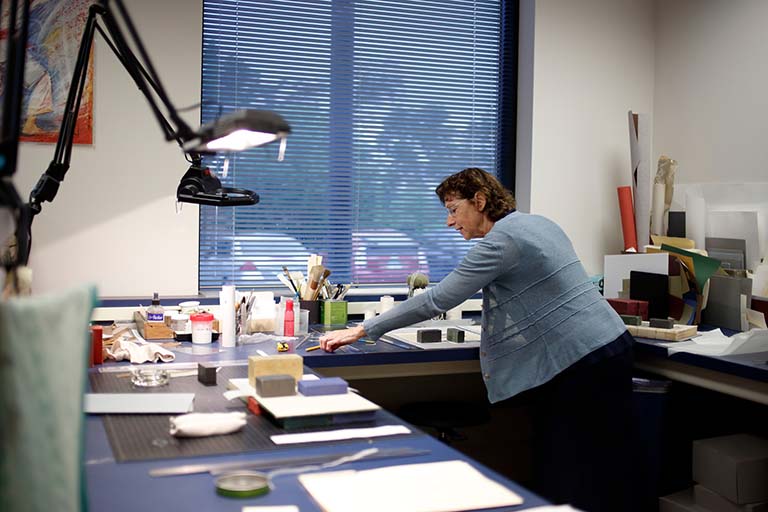[View original story from source]
IU's international reputation for Drosophila research attracts donation of collection for preservation.
As the site of three world-renowned resources on fruit fly genetics, Indiana University Bloomington has been called the "mecca" of fruit fly genetics. A recent donation of "sacred texts" of the field will be held at IU's Lilly Library, establishing a historical base to study the genesis of American genetics.
Last year, IU Distinguished Professor of Biology Thomas Kaufman obtained an important collection of early 20th-century publications on the genetics of fruit flies—or Drosophila—from the late William Gelbart, an influential researcher in the field who passed away in 2015.
"This is a printed record of the day-to-day life in the early Drosophila group, which was the founding school for American genetics," said Kaufman, who has long played a leadership role in IU's Drosophila expertise and the American genetics research community.
The collection notably includes an entire collection of the Drosophila Information Service, known as DIS, the seminal journal dedicated to fruit fly genetics. Their pages contain some of the earliest scientific writings on Drosophila and predate the insect's rise as one of the most important tools researchers use to study basic mechanisms of human biology.
Kaufman obtained the collection as a result of his strong friendship with Gelbart, one of the founders of FlyBase, a multisite database on fruit fly genetics on which Kaufman served as a co-director. Other centers dedicated to Drosophila at IU are the Bloomington Drosophila Stock Center, a site that distributes thousands of its stocks of more than 71,000 genetic strains of fruit flies weekly across the globe; and the Drosophila Genomics Resource Center, which provides the research community with greater access to genetic data of fruit flies.
Before Gelbart's death, Kaufman asked Gelbart's wife, Susan, about the collection, since he also had similar documents.
"We thought we should put it all together and donate it some place where they're going to keep it and where it can be utilized and appreciated," Kaufman said.
Gelbart himself had inherited some of the collection from Edward B. Lewis, a famous fly biologist and winner of the 1995 Nobel Prize in Physiology or Medicine. Other items originally belonged to Alfred Sturtevant, a geneticist who was one of the original members of Thomas Hunt Morgan's "Fly Room" at Columbia University, the place often considered to be the birthplace of modern genetics research in the early 1900s.



 The College of Arts
The College of Arts